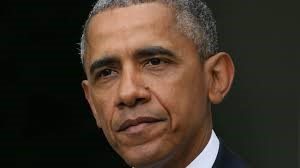One of the key causes of racial inequality is economic inequality. For many people seeking to explain the racial inequality that has persisted since the Civil War, the economic argument is often intertwined with discrimination and the need to gain a more powerful political voice in government. These remain the prime variables in climbing the ladder to racial equality in a capitalist society.
So, it should not be surprising to discover that some of the first Afro-American intellectuals recognized that economic power was also social power, which translated into political power.
As early as 1923, W.E.B. Du Bois cautioned other Afro-Americans to look ahead and adopt a more modern economic attitude towards work and wealth creation.
In an article in the Jewish daily Forverts newspaper on May 8, 1923, entitled “The Negro Race Looks To Jews For Sympathy and Understanding,” Du Bois, a professor of economics and history at Atlanta University from 1896 to 1910, said the path to political inclusion hinged on adopting new ways of economic thinking.
“The main problem of the Negro is not the struggle for a higher economic plane of living, but the racial discrimination and the struggle for a voice in the state,” he said. “Consequently, the Negro still thinks about work and wages in terms of the modern division of labor in terms of the early Nineteenth Century. He has no time to think of the modern economic revolution, for he does not know socialism, socialization of industry, and the other solutions we radicals put forward for the happiness of all.”
In this same interview, Du Bois addressed the real cause that perpetuates discrimination. “Here you have it in the naked shame, the technique of American race prejudice. It is idle to charge up lynching solely to ‘the poor white trash.’ The ignorant and the poor may lynch and discriminate. Still, the intense and essential racial hatred in the United States is a matter of the educated and distinguished leaders of white civilization.
“They are the ones who are determined to keep black folk from developing talent and sharing in civilization. Not only do they not raise a hand to stop the discrimination, they even gently and politely, in strict secrecy, put their shoulders to the wheel and push it forward.” Du Bois said this in 1923.
MLK Identifies the Same Problem
In his last speech in Memphis, Dr. Martin Luther King said Americans had to “question the capitalist economy.” He then called for “a revolution in values.”
As quoted in an article in The New Yorker by James Wood, “The Time of Your Life” (May 20, 2019), King told a staff meeting of the Poor People’s Campaign in January 1968 that he “didn’t believe capitalism, as it was constructed, could meet the needs of poor people, and that what we might need to look at was a kind of socialism.”
“…the really deep and basic race hatred in the United States is the matter of the educated and distinguished leaders of white civilization.”–W.E.B. Du Bois
Knowing he was treading in dangerous waters, King told the group that if that statement were repeated outside the meeting, he would have to deny it. King studied the works of Karl Marx and once said his favorite philosopher was Frederick Hegel.
Since also King said capitalism has limitations. As a result, “we might need to look at a kind of socialism.”
King never had the time to develop his version of socialism, but the wealth gap has become severe in the 51 years since King’s 1968 speech. As the French economist Thomas Piketty analyzed, inequality is built into the system. When an economy has a rate of return on capital exceeding the growth rate, inherited wealth always grows faster than earned wealth.
Other articles in The New York Times, Forbes, and The Center for American Progress confirm the gap. They found that “In 2016, the median wealth for black and Hispanic families was $17,600 and $20,700, respectively, compared with white families’ median wealth of $171,000.”
The economic situation for blacks and Hispanics remains dismal, and an increasing number of whites remains dismal. One dire estimate from the Corporation for Enterprise Development and Institute for Policy Studies found in a 2016 study that “if average Black family wealth continues to grow at the same pace it has over the past three decades, it would take Black families 228 years to amass the same amount of wealth White families [had in 2013]. That’s just 17 years shorter than the 245 years of slavery in this country. For the average Latino family, it would take 84 years to amass the same wealth White families [had in 2013]—that’s the year 2097.”
In other words, if your ancestors did not make the money, chances are you won’t have much, if anything, to inherit. That seems to be the case today, 96 years after the Du Bois interview.
Obama Did Not Help the Situation
Another study by the National Asset Scorecard for Communities of Color found that “Blacks with some college education have higher unemployment rates than whites who never finished high school.”
Worse, “at each level of education, the black rate of unemployment is twice as high as the white rate. Moreover, the relative economic position on virtually all indicators, including the racial unemployment rate gap, has not improved since the passage of the Civil Rights Act of 1964.” 
In the article, How Barak Obama Failed Americans, by William Darity (Dec. 22, 2016, The Atlantic), the author makes the case that it took over 150 years of social and racial injustice to create today’s dramatic economic injustice gap.
But Obama, as Darity points out, did not start programs or develop legislation that would have the teeth even to begin to correct the entrenched wealth gap problem that exists between black and white workers, including the more significant gap that separates black females from white females.
Citing research from a separate article by Ta-Nehisi Coates, Darity points out that:
- “blacks with a college degree have an unemployment rate almost as high as white high school graduates;
- “that completion of a college education leads blacks to carry twice the level of student loan debt than whites four years after the degree,
- “that blacks experience a significantly higher default rate on their loans, that black households have one-seventh of the wealth of white households;
- “that black families with $100,000 or more in income reside “in more disadvantaged neighborhoods than white families making less than $30,000.”
Today, there is still a need for Afro-Americans to consider whether other economic systems would reduce the economic opportunity gap.
Since the Civil War, the U.S. has perfected the model of capitalism. Even as it evolved into its highest stage, monopoly capitalism, business leaders, social policy thinkers, and elected officials have still not corrected its inherent conflicts and systematic abuses.
The 2020 election offers a historic opportunity to inject new economic ideas into the system that would benefit millions of Americans left behind with little hope of ever catching up. New ideas beget new opportunities.
Maybe it’s time for the millions left behind to focus on voting for a candidate who will present new economic ideas and opportunities.











